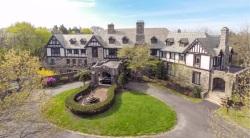
Most people think that gifted children are the smart kids in school who get special privileges. They get to work on projects they like and they always get high grades. They are chosen to lead class groups and get to go on special trips. They are given academic recognition.
But there is much more to these students than academic proficiency. Giftedness is more than academics, more than educational behavior. Although these students may have been born with high brain functioning, they are also social beings with emotions.
Gifted children may have strong reasoning abilities, be creative thinkers, and have intuitive analytical skills. But they may also have sensitivities to light, sounds, and other environmental stimuli.
They may have learning disabilities that hide their giftedness. There are twice-exceptional, or 2E, gifted students who have high IQs, many above 150, but who also have a learning disability that masks their giftedness. These exceptional students are often overlooked, generally misunderstood, and frequently miseducated
Historically, schools have recognized gifted students as being high achievers. But they have failed to recognize the complexity of the mental, emotional, and physical states of these children and their unique developmental phases. They each grow at different rates and in different ways.
Schools have focused on leaving no children behind, on treating all children the same, teaching them all the same and expecting them all to respond in the same way.
This approach does not favor gifted children and their uniqueness. Except for the few special privileges that may exist for those who show strong academic promise, there is little attention paid to the non-academic needs of these children.
In fact, some of those needs may show up as arrogance, laziness, lack of motivation, or acting out, when the reality is a lack of appropriate educational content and opportunity of expression.
These children learn differently or at a pace different from their peers. They need more time or less time to become proficient in certain academic subjects. They can appear bored or alienated. They can be daydreaming about getting home to create their next musical masterpiece.
The gifted student may finish mathematics assignments so quickly that they have to sit there while their classmates struggle to complete theirs.
Progress Is Not Lock-Step
Years ago, some educational research focused on transitions of students from elementary school to middle school to high school. The theory was that all students went through the same cognitive, physical, and social-emotional developmental issues as they changed environments. It was the natural process of maturation and growth.
But educators are realizing now that, although grade progression is lock-step for most students, the developmental process is not similarly linear. Children grow more in a non-regular way, in a zigzag pattern. It is a process that has been compared with a child who dances in circles as she winds down the street.
Development is not lock-step but gradual and irregular. Education cannot be force-fit to all students in the same way. Expectations have to change. One size just doesn’t fit all.
The Whole Child
Educators today are learning that there is more to giftedness than strong academics. They are learning that gifted children have unique experiences, develop differently, need nurturing, and need to be better integrated into the social as well as the academic world of their peers.
Children come from diverse backgrounds. Acknowledging this, educators are looking for ways to educate the whole child including social, emotional, physical cognitive, and talent development.
The goals of education are becoming more holistic, including those for gifted children. The objective is to develop highest levels of cognitive, social, emotional, physical, and ethical abilities and attitudes.
Education must move beyond the preparing of children to be well-educated students to making them well-educated citizens who are active and productive participants in the social and economic system in which they live.
Education should cultivate respect for the natural environment, inspire creativity, spur imagination, promote compassion, encourage self-awareness and self-knowledge, teach social skills, and support emotional health.
There is a new movement in the field of education called the Whole Childthat is about educating the heart and the hands as well as the head, enabling children to believe in themselves, to say what excites them, what challenges them, and what scares them. It supports the championing of feelings like empathy and compassion. It promotes the development of values.
The Whole Child advocates that every child is unique, gifted, and deserving to reach his or her fullest potential. It questions whether multiple choice tests can measure how children are progressing both as students and as human beings.
Educating the whole childemphasizes arts and creativity as being integral to learning and teaching. Every child should be encouraged to create, write, speak publicly, think, organize, draw and paint, and enjoy music.
It Takes a Village
Gifted education that promotes the development of the whole child is not the job of teachers only, although they play a primary role, especially those who get trained in giftedness. It also involves empowering parents and families, counselors and other professionals, and even the community in a network of support.
If schools focused on the whole child whether gifted or not, maybe there would be fewer feelings of animosity toward any class of students. Non-gifted students who are given opportunities to address their interests but also taught to respect more gifted students might improve the social climate in the classroom.
Gifted students who are recognized for their academics should also be recognized for their learning deficiencies and challenges. Maybe their non-gifted peers will be taught to value acceptance and the opportunity to offer any help they can.
Gifted education for the whole child is about attaining more balance – between academics and creative pursuits, between individual achievement and group interaction, between scholarship and citizenship, and between chronological development and intellectual/social development.
While gifted education is mainly about the whole child, it is also about the whole classroom, the whole educational community, and the whole of society. There is a role for everyone in redefining what gifted education really means.






